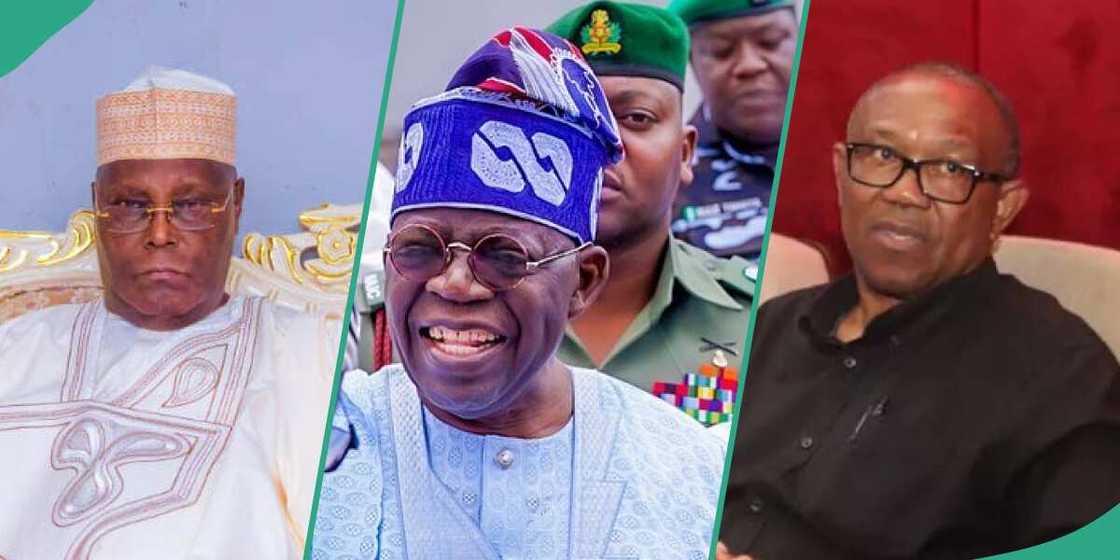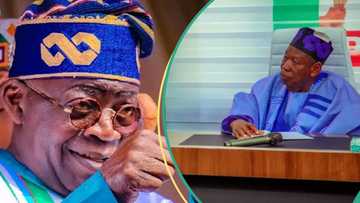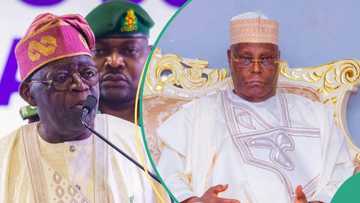7 Key Takeaways from Supreme Court's Verdict as Tinubu Defeats Atiku, Peter Obi
Legit.ng journalist Ridwan Adeola Yusuf has over 6-year-experience covering politics in Nigeria
FCT, Abuja - The Supreme Court on Thursday, October 26, upheld President Bola Tinubu's victory in the February 2023 presidential.
The verdict ended the legal challenge brought by his two main rivals, Atiku of the Peoples Democratic Party (PDP) and Peter Obi, the candidate of the Labour Party (LP).
The pair had argued that Tinubu's victory was marred by irregularities.

Source: Facebook
Legit.ng writes on the key takeaways from the apex court's judgement as Tinubu floored both Atiku and Obi.
PAY ATTENTION: Share your outstanding story with our editors! Please reach us through info@corp.legit.ng!
1) Supreme Court: Rejection of Atiku's CSU evidence
In the lead judgement delivered by the chairman of the seven-man Supreme Court panel, Justice John Inyang Okoro, the apex court refused to consider the academic records of the President obtained from the Chicago State University (CSU). Atiku had sought to tender the CSU document as a piece of fresh evidence to prove his allegation of certificate forgery against the All Progressives Congress (APC) chieftain.

Read also
“Truth must be told”: Non-functioning of IReV may reduce voters’ confidence, Supreme Court admits
2) INEC’s ‘compliance’ with Electoral Act
The Supreme Court said Atiku did not prove that the Independent National Electoral Commission (INEC) did not substantially comply with the provisions of the Electoral Act, in the conduct of the February election.
The apex court affirmed that section 185(1) of the Evidence Act provided that an election should not be liable to be invalidated when alleged non-compliance did not substantially affect the outcome of the election.
3) Collation intact despite INEC's IRev snag
The Supreme Court held that INEC’s failure to electronically transmit the election results via the Election Result Viewer (IReV) portal does not affect the collation.
Justice Okoro noted that the Electoral Act empowers INEC to determine the mode of transmission of election results. However, the court noted that IReV’s malfunctioning reduced public confidence in the presidential election.
Okoro said:
“Truth must be told, the non-functioning of the IReV may have also reduced the confidence of the voting public in the electoral process.”
4) Atiku’s witnesses’ testimonies are hearsays: Supreme Court
The apex court supported the judgement of the tribunal for striking out witnesses of Atiku’s testimonies on alleged manipulation in the election.
The court described Atiku’s witnesses’ testimonies as hearsays.
5) FCT has no special status, 25% immaterial
The Supreme Court maintained that the federal capital territory (FCT) has no special status; thus, the court said it agreed with the judgement of the tribunal that 25 per cent is immaterial.
It insisted that there was nothing wrong with the September decision of the tribunal.
6) ‘Media trials’, press conferences amid election disputes
The Supreme Court criticised the appellants – Atiku and Obi – for allegedly engaging in media trials and reaching conclusions before court rulings.
Okoro said:
“Litigants are advised to trust the court whenever their matters are before it. It is very unbecoming these days that while a matter is pending in court, litigants engage in press conferences, analysing the case, and reaching conclusions.
“Based on this, some of their followers send threatening messages to judges and justices; matters in court are said to be sub judice.”
7) Shettima innocent of double nomination, supreme court
Furthermore, the court said the issue of the double nomination of Vice President Kashim Shettima ought not to have been brought before it, saying the matter had earlier been resolved by the court.
It, therefore, ruled that the appeal was lacking in merit.
Supreme Court’s judgement: "We're alarmed", PDP
In a related article by Legit.ng, the PDP rejected the judgement of the Supreme Court in the petition filed by its presidential candidate, Atiku.
In a statement signed by Debo Ologunagba, the PDP spokesperson, on Thursday, October 26, the main opposition party alleged that the apex court failed Nigerians.
Source: Legit.ng




